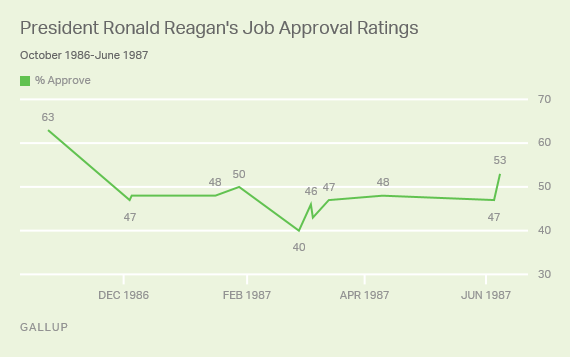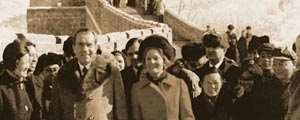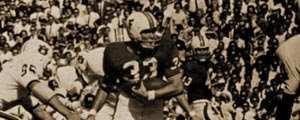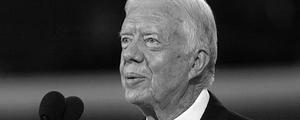After taking a licking in a February 1987 congressional report on the Iran-Contra affair, Ronald Reagan responded with a live televised address from the Oval Office on March 4. His beleaguered job approval rating instantly improved, rising from 40% just before the speech to 46% right after.

Reagan had been enjoying 60%-plus job approval ratings in the fall of 1986, before his rating tumbled to 47% in December with the eruption of the Iran-Contra affair. His approval rating fell further, to 40%, upon the release of a congressional investigative report on the Iran-Contra scandal in February 1987, marking Reagan's second-term low point.
That report by the Tower Commission rebuked Reagan for a loose management style that had allowed the National Security Council to operate in secret and unfettered. It also, according to the Los Angeles Times, "brought demands from both parties in Congress that President Reagan change the hands-off approach to governing that has been the hallmark of his presidency."
Former Vice President Dick Cheney, then a Wyoming congressman, was quoted warning that if Reagan did not provide better leadership, "there is every reason to expect that the last two years of the administration will be very unproductive and very frustrating, not only for the president but for those of us who support him."
Reagan addressed these criticisms head on in his March 4 speech. He acknowledged his management approach was flawed, took personal responsibility for the actions of his staff and promised to change course in three major areas: "personnel, national security policy and the process for making sure that the system works."
By April 1987, Reagan's job approval rating had reached 48%, and it never again dipped below 45%. In his final year in office, Reagan averaged a 53% job approval rating, including a final reading of 63% in December 1988.
Read the original Gallup news release.
These data can be found in Gallup Analytics.
Read more from the Gallup Vault.



